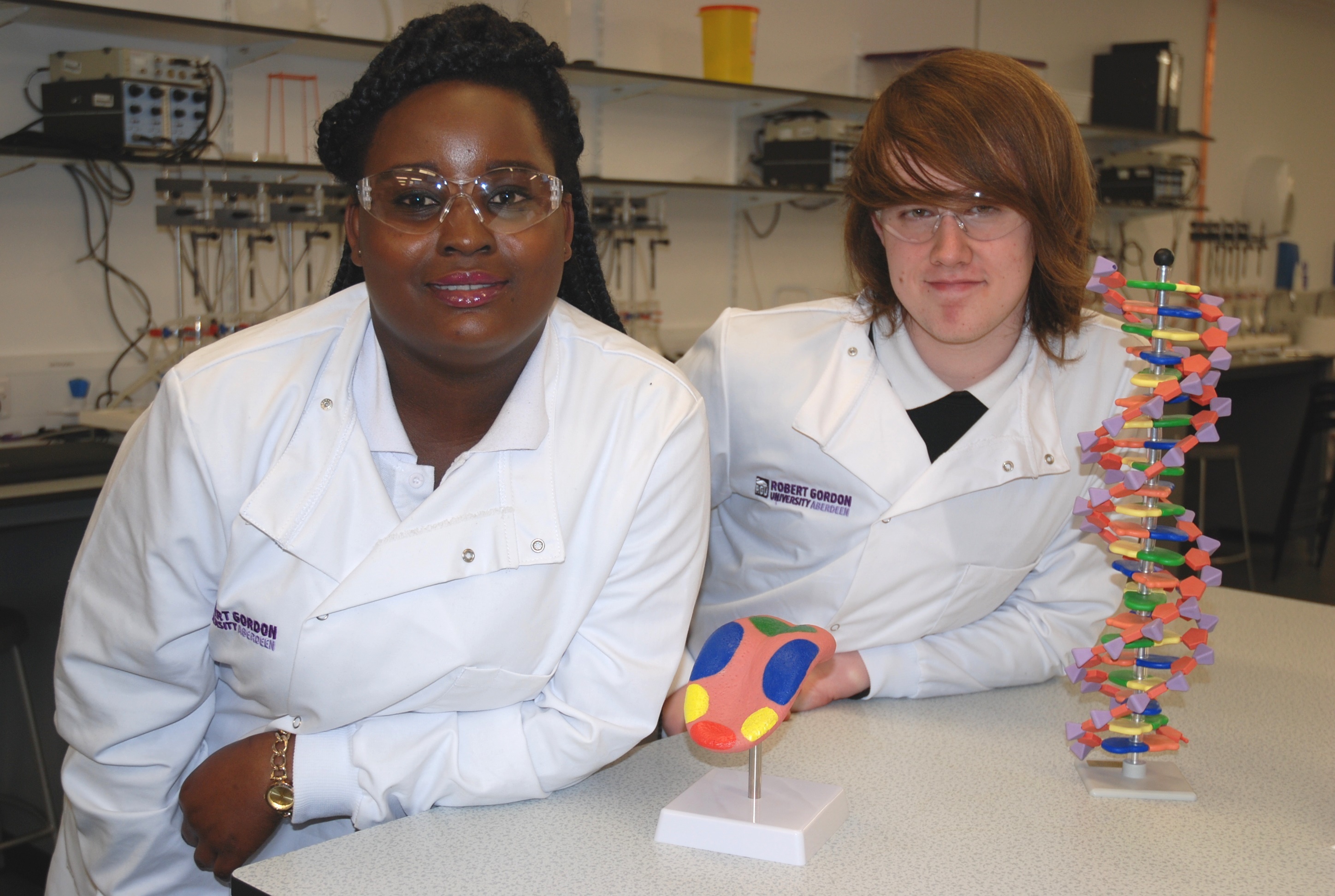Aberdeen secondary school pupils have unlocked the secrets of life sciences at Robert Gordon University (RGU).
A total of 18 senior pupils from across the city have been attending the university’s Access to Forensic and Analytical Sciences programme to learn about toxicology.
Using the university’s laboratory facilities, they have gained valuable practical skills in team working, key laboratory techniques, experimental observation, critical analysis and problem solving.
In RGU’s labs they have designed and carried out plant experiments to determine the toxicity of substances and learned how a chemical’s structure influences toxicity. The pupils have also used genetics to learn how the human body has evolved to cope with toxins in food, and used microbiological techniques to determine the cause of food poisoning.
Senior Hazlehead Academy pupil Stella Amekor and Austin McNamara from St Machar Academy are both interested in pursuing careers in forensic and analytical science.
Stella said: “I’ve been interested in science for a long time and RGU’s Access programme has been a great way to learn more about how forensic science is taught at university. The lab sessions have been a lot of fun and we’ve been learning about different toxins and how they affect humans and plants.”
Austin added: “I found out about the programme through friends who attended last year. When I knew there was a forensic science course I jumped at the opportunity. I’ve enjoyed building chemical molecules on the lab computers which is a more advanced level than what we learn about at school. The university’s science labs have the very latest technology which has meant that we’ve been working with the same equipment experts in the field are using every day.”
Dr Marie Goua, lecturer in Biomedical Sciences at RGU’s School of Pharmacy and Life Sciences, received a Biochemical Society Diversity in Science grant to help fund the project and has worked with colleagues to deliver the programme.
She said: “The pupils on the access course have been familiarising themselves with all aspects of toxicology; an exciting, multi-disciplinary subject where biology meets chemistry. By working with members of academic staff and current students, they have gained a better understanding of the different careers they could go into using a science degree from RGU, from microbiologist, pharmacist, environmental chemist and food scientist to forensic investigator.”
RGU’s ‘Access To’ programmes are aimed at S5 and S6 pupils who are under-represented in higher education.
The free programme aims to enable pupils who have the ability and potential to benefit from higher education, whatever their circumstances. It forms part of a suite of Access RGU programmes developed as part of the university’s commitment to widening access.
James Dunphy, Study Skills & Access Unit coordinator at RGU, said: “The Access RGU programmes form an important part of our commitment to supporting young people to develop and make the very best use of their skills. More than 140 young people from Aberdeen City schools will engage in the programmes this year.
“The level and quality of participation is testament to the commitment these individuals have to their future. It is the university’s great pleasure to play an active part in supporting them through this work.”
